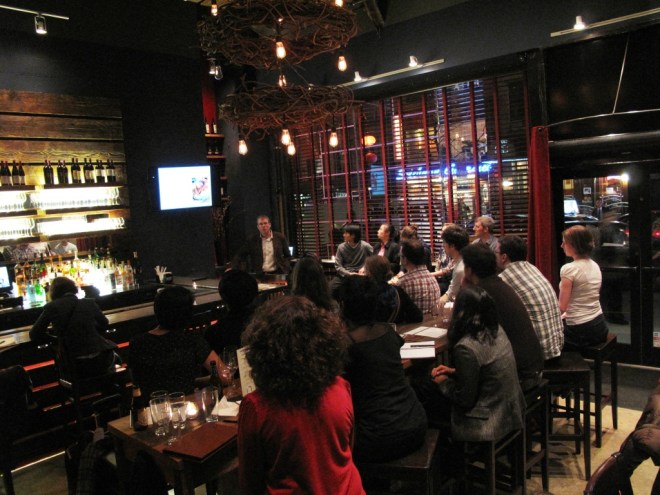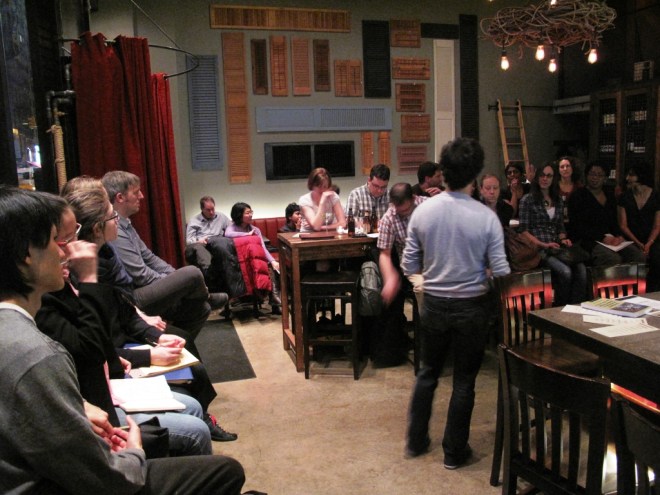On Thursday, February 23rd, a diverse crowd of over 30 professors and graduate students gathered at Bar Basso in midtown Manhattan for the 4th AAG Development Geographies Specialty Group’s Pre-Conference. Seven presenters each delivered a seven-minute policy plea on issues ranging from land use and fair trade certification “on the ground” to the management of e-waste, Vietnam’s recent growth and inequality trajectories, and the practice of development as a political process. The group then met for dinner across the street and spent the next two hours debating and networking. Click here for the complete program. The next DGSG Pre-Conference is planned for 2013 in Los Angeles, CA.
Month: February 2012
New CGD working paper on health aid effectiveness ranks DFID highest, UN low
Building on the growing body of empirical literature on aid effectiveness–including two of my recent publications—Amanda Glassman and Denizhan Duran at the Center for Global Development just published an interesting working paper that achieves two things simultaneously: it provides an excellent overview of the dramatic increase of Development Assistance in Health (DAH) globally during the past decade while also, for the first time as far as I am aware, ranking the individual performance of national as well as multilateral donor agencies in DAH. Echoing some of the findings documented in a recent paper by Bill Easterly and Claudia Williamson published in World Development, their analysis uncovers wide variation in both allocative efficiency and DAH agencies’ effectiveness as reliable, transparent and supportive partners for institutional development in recipient countries. The UK’s DFID ranks highest overall, followed by the Dutch and Danish aid agencies. GFATM is the highest-ranked multilateral agency in the sample. Conversely, selected UN agencies (clustered) rank lowest among multilateral organizations. Major bilateral donors such as Japan, Belgium and France also find themselves at the bottom of Glassman’s and Duran’s results.





You must be logged in to post a comment.